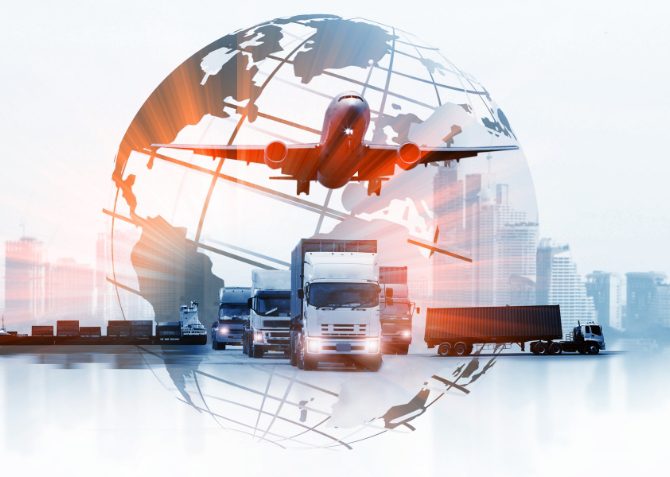
Do you own a company that needs to export products around the world? If so, you understand the importance of having a reliable international logistics system. From navigating complex customs regulations to ensuring timely delivery, managing international logistics can be daunting.
This blog post explores the key elements of successful international logistics, and provides tips for setting up an effective system for your business. We’ll also discuss the benefits of working with an experienced logistics provider to ensure your shipments arrive on time and in perfect condition. So, let’s get started!
How does the international logistics chain work?
International logistics is a complex process that involves several different steps. Suppose you are an American company that needs to import products from China. It starts with the supplier, who ships goods to the international port. The goods are loaded onto a ship and transported to their destination. In this case, we’re probably talking about the Port of Los Angeles.
Once the goods arrive, they are unloaded and sent to a warehouse or distribution center. From there, they are shipped to retailers or customers. Finally, they are delivered to their final destination. Throughout this process, customs clearance and other paperwork need to be completed for the goods to legally enter the destination country.

International logistics chain involves worldwide actors.
Understanding the Complexities of the International Logistics Process
As you can see, the international logistics chain several parties. The supplier, freight forwarder, shipping line, customs broker, and carrier are all key players in this process. The freight forwarder is responsible for coordinating the movement of goods and handling the necessary paperwork.
Following our previous example, the shipping line handles transporting goods by sea. Customs brokers help navigate the often-complicated customs clearance process and ensure compliance with all laws and regulations. Carriers, such as trucking companies, handle the final leg of the journey, delivering the goods to the warehouse or distribution center.
It’s also worth noting that various international logistics channels, including sea, air, and ground, can be used for international shipping. Each mode has its own set of pros and cons, and the choice depends on factors such as cost, speed, and type and size of the goods being shipped.
Global Supply Chain Management
Another important aspect of international logistics is managing and minimizing supply chain risks. This includes protecting the goods from damage or theft during transit, and ensuring compliance with trade laws and regulations. This can be achieved through proper packaging and labeling, tracking and monitoring systems, and working with experienced logistics providers familiar with the intricacies of international trade.
Overall, international logistics management is a complex and dynamic process that requires coordination and expertise to navigate successfully. With the right strategy and partners, companies can streamline their logistics operations and achieve greater efficiency and cost savings.
The main benefit of having international logistics partners is that you will find more time to focus on your product and user experience, rather than the complex mechanisms associated with global logistics.
The importance of working with International Logistics Companies
International shipping logistics experts are essential to the success of global trade. They ensure that goods are transported safely and efficiently from one country to another. Logistics experts must be knowledgeable about the laws and regulations of each country, as well as the best routes for shipping goods. They must also be able to communicate effectively with people from different cultures and backgrounds.
By having an expert in international logistics, businesses can save time and money while ensuring their goods arrive on time and in good condition. Having a Logistics Manager is always a good practice for your company. This person will be in charge of dealing with the logistics management processes, as well as keeping a good relationship with third-party companies.
Is it a good idea to outsource international customs clearance?
In addition to these benefits, working with international logistics companies can help businesses navigate customs clearance and documentation complexities. These companies have the experience and resources to ensure that all the necessary paperwork is in order and that all applicable tariffs and taxes are being paid. This can help to minimize delays and avoid costly mistakes.
Furthermore, these companies offer a range of value-added services, such as warehousing, packaging, and distribution. These services help businesses streamline their supply chain and improve their overall competitiveness.
Working with international logistics providers is essential for businesses that want to take advantage of the opportunities offered by global trade, and for those who want to reduce the risks and costs associated with it.
Challenges and Solutions in International Shipping Logistics
International logistics can be challenging due to the complexity involved in every supply chain step. Shipping goods across borders requires understanding different regulations, taxes, and other topics. Language barriers and customs clearance are some of the most common challenges in international logistics, to name a few.
Solutions to these challenges include working with experienced logistics providers who can help navigate the complexities of international shipping. On the other hand, using top-notch technology, such as tracking systems, can also help make the processes more efficient. With the right solutions in place, international logistics can be managed effectively.
Main challenges for International Logistics:
As we have stated before, international logistics are a serious challenge. Customs clearance and logistics coordination are probably two of the most common issues, no matter what kind of products you import or export. Customs clearance involves obtaining the necessary permits and documentation to move goods across international borders.
Logistics coordination requires careful planning to ensure that goods arrive timely and in good condition. Both of these tasks can be difficult, but they can be managed successfully with proper preparation.
Customs clearance
International shipping logistics experts can assist by preparing all required documentation and helping businesses understand all customs clearance rules and regulations. They can also help with customs clearance by liaising with government agencies on your behalf.
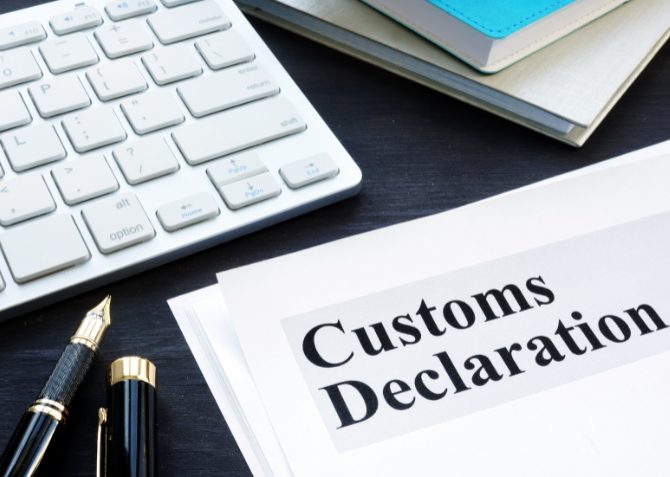
International logistics experts can help you with customs clearance and documentation.
Logistics coordination
International logistics involves planning the movement of goods from one country to another, and coordinating with the various parties involved in the supply chain, such as freight forwarders, shipping lines, trucking companies, customs brokers, and insurance providers. Logistics experts help by organizing all shipping documents and managing the transport of goods from one country to another.
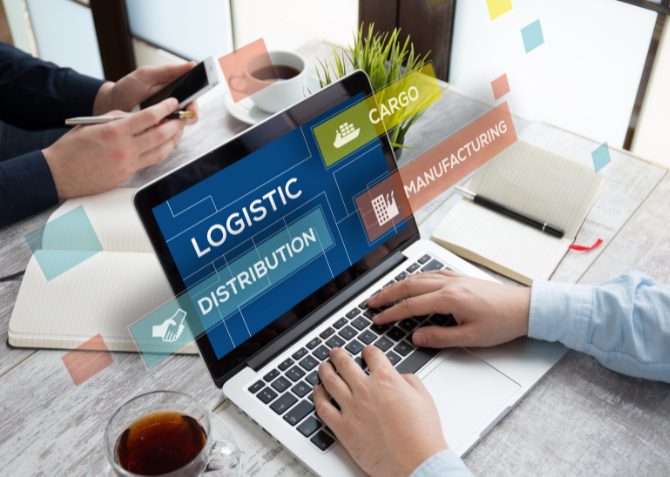
Logistics coordination requires careful planning between all supply chain actors.
Other INTERNATIONAL LOGISTICS challenges
In addition to customs clearance and logistics coordination, there are other important challenges that businesses need to consider when dealing with international logistics. One of these challenges is managing the risks associated with international trade. This can include dealing with political instability in a country, currency fluctuations, natural disasters, and more. Businesses need to anticipate and manage these risks to ensure the smooth and timely delivery of goods. Another important challenge is transportation costs. Businesses need to find the most efficient and cost-effective way to move their goods from one country to another, and this can be a complex and time-consuming task. This involves finding the right carrier, shipping route, and transit time, as well as ensuring a plan B in case there’s any issue.
Real case example at the USA – Mexico border
International logistics can be seen in action at the US-Mexico border. According to the Mexican Embassy in the US, over $1.2 million in products move across the border every minute. This process is complex and requires careful coordination between the two countries.
The first major challenge is the language barrier. Many customs officials in Mexico speak limited English, making it difficult for American companies to communicate and provide necessary documentation. Additionally, Mexico has a different tariff and tax system than the United States, which can make it difficult for American companies to understand and comply with regulations.
Furthermore, Mexican customs has implemented strict regulations for imports and exports, which may cause delays in the operating process. It often requires additional documentation that American companies may not be familiar with. American companies need to work with experienced logistics experts, and to be well-prepared with the necessary documentation and knowledge of regulations to ensure a smooth customs clearance process.
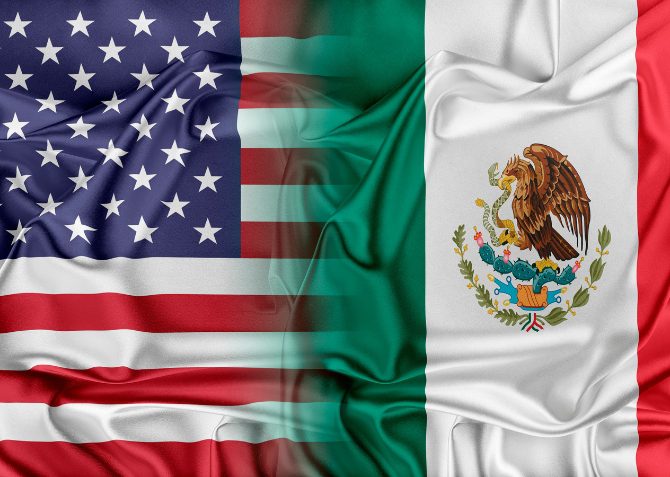
Over 1.2 million dollars in products move across the border every minute
Examination of strategies and technologies for overcoming these challenges
Now that we are aware of the complexity of international logistics, some strategies and technologies can help. Companies can use tracking systems to monitor shipments and get real-time updates on their progress. Automation technology can also help streamline processes and reduce errors. Collaboration between companies and their suppliers can help ensure that goods are delivered on time and in good condition. Investing in training for staff can help them stay up to date with the latest developments in international logistics.
TRACKING SYSTEMS
Tracking systems allow companies to monitor their shipments in real-time and receive updates on their progress throughout the shipping process. According to a study by the International Air Transport Association, electronic tracking systems can increase the efficiency of logistics operations by up to 50%.
Furthermore, companies can reduce human errors and improve overall accuracy by automating certain processes. A Deloitte survey found that companies that invest in automation technology saw an average reduction of 20% in logistics costs.
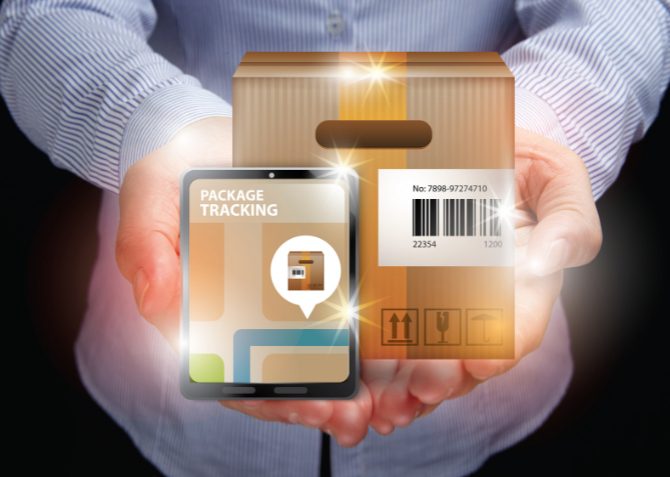
The use of electronic tracking systems can increase the efficiency of logistics operations by up to 50%.
COLLABORATION
In addition to technology, collaboration is also a key element in effective international logistics. Companies can ensure that goods are delivered on time and in good condition by working closely with suppliers. An Accenture survey found that companies that have strong supplier relationships experience an average of 15% reduction in logistics costs.

Collaboration between companies and their suppliers can help ensure optimal lo
TRAINING STAFF
Finally, investing in training for logistics staff can also help them stay up to date with the latest developments in the field. This can include training on the use of new technologies and education on international trade regulations and customs procedures.
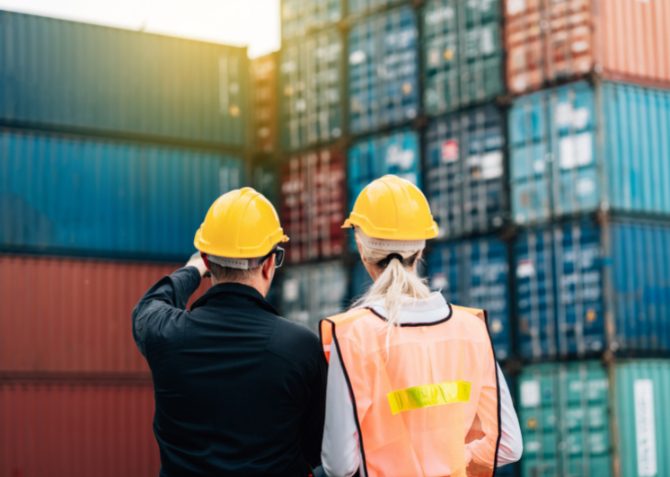
Investing in staff training can help your company to stay updated in international logistics.
As a matter of fact, with the right strategies and technologies, companies can effectively manage the challenges of international shipping and logistics.
Choosing the Right International Shipping Logistics Provider
Choosing the right international shipping logistics provider is an important decision. Finding a provider that can handle your needs and offer reliable services is crucial. Look for a provider with experience in international logistics, so you can be sure they understand the complexities of international shipping.
Make sure they also offer competitive rates, reliable tracking, and fast delivery times. Finally, check customer reviews to ensure you get the best service possible. With the right international logistics provider, you can be sure that your goods will arrive safely on time and manner.

How to choose the right international shipping logistics provider?
Criteria to consider when selecting an international logistics provider
Here’s a non-exhaustive list of criteria you can take into account before hiring an international logistics provider:
- Global Logistics Coverage: Look for a logistics provider with a strong global network that can handle deliveries to your target countries.
- Reliability: Check for the provider’s reputation and track record for delivering goods on time and in good condition.
- Cost-Effectiveness: Compare prices and services offered by different providers to find the most cost-effective solution.
- International logistics channels: Ensure the company you are hiring can manage multiple distribution channels such as ground, sea, and air transportation.
- Flexibility: Look for a provider that can adapt to your specific international supply chain needs and requirements.
- Communication and transparency: Look for a provider that is easy to communicate with and provides detailed updates on the status of your shipments.
- Compliance: Verify that the provider complies with all relevant regulations and customs procedures to avoid delays or penalties.
- Technology: Look for a provider that uses advanced tracking and automation technology to ensure efficient and accurate logistics operations.
- Additional Services: Consider if you need additional services such as warehousing, packaging, and insurance, and check if the provider offers these services.
- Customer Service: Evaluate the provider’s customer service and response time to address any issues or concerns.
- Scalability: Consider if the provider can scale their services as your business grows or changes.
It is important to note that the criteria to be considered will vary depending on the specifics of your business and the logistics needs. It’s important to evaluate your needs and choose a provider that best fits your requirements.
Comparison of different types of providers
When comparing different types of providers in the international supply chain, it’s important to understand each type’s specific services.
Freight forwarders are a key element in the logistics process, as they coordinate and plan the entire shipping process. They provide a range of services, including customs clearance, storage, and insurance, which can help to ensure that goods are delivered on time and in good condition.
On the other hand, shipping companies handle the actual transportation of goods. They are responsible for loading and unloading cargo onto ships or planes, and ensuring that the goods reach their destination safely.
Both types of providers play an important role in successful international logistics, and a combination of both is usually required for a seamless and efficient supply chain process. While freight forwarders take care of the planning and coordination, shipping companies are responsible for the physical movement of the goods. Together, they ensure that goods are delivered on time, safely, and with minimal interruption.
Conclusion
In conclusion, international logistics involves a complex process that requires coordination and expertise to navigate successfully. With the right strategy and partners, companies can streamline their logistics operations and achieve greater efficiency and cost savings. The key elements of successful international logistics include understanding the complexities of the process, managing and minimizing supply chain risks, and working with experienced logistics providers. International shipping logistics experts are essential to the success of global trade; they ensure that goods are transported safely and efficiently from one country to another and are knowledgeable about the laws and regulations of each country and the best routes for shipping goods. With the help of international logistics partners, companies can focus on their product and user experience rather than on the complex mechanisms associated with global logistics.


